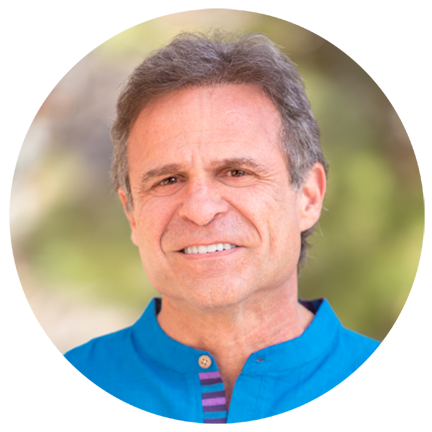Soul wounds, as The Sanctuary’s founder Dean Taraborelli puts it, are “the granddaddy of all wounds.” We all have them, and they’re all real. And if we don’t do the work required to process them and let them go, they can show up in our life in very disruptive ways. This is your soul’s way of calling attention to what still needs to be healed.
One of these is defectiveness: the belief that there’s something innately wrong with us.
By the time many of our clients reach The Sanctuary, they’ve already tried numerous therapeutic avenues. For many, they feel like they’ve reached the end of their rope; the choice is either change or death. One program graduate, Joe, describes what led him to The Sanctuary this way: “I felt like I was pressured to come, and that if I didn’t everything in my life would fall apart. I was going to lose everything.”
Moments of crisis like this can feel deeply unsettling, but they can also be the start of an incredible transformation.
Let’s take a closer look at what the defectiveness wound involves, where it comes from and how you can not only heal from trauma, but use your experience to propel you into a new stage of your life’s journey.
Defectiveness Schema
The belief that we’re fundamentally flawed, and the coping strategies we develop to deal with it, form what’s known in schema therapy as defectiveness schema. As mental health author Patrick Fanning puts it, “A defectiveness schema is a core belief that makes you feel internally flawed in some critical way.” This can lead to a fear that “if people get close to you or see your significant defects, they will reject you and withdraw from you.”
Internalized feelings of defectiveness usually form in early childhood, and lead us to develop core beliefs that we’re:
- Broken
- Wrong
- Inferior
- Unstable
- Unlovable
It’s easy to see why operating from this place would make it difficult to form fulfilling relationships. We might be afraid that if people could see the real us, they would reject us. And as a result, we push them away so as not to make ourselves vulnerable, or cling so tightly that we create codependency. We may become ultra-sensitive to criticism and respond poorly to what we interpret as attacks. And underlying all of this is, as Fanning says, is “the belief that our needs for stability, safety, nurturance, love, and belonging will not be met.”
Joe describes just how far-reaching the effects of this can be: “When that hold is on you, it dictates everything. It dictates how you live your life, what friends you associate with, and what kind of person you are. You start to value your self-worth on those things.”
How Feeling Defective Affects Our Lives
When we carry around this soul-level wound, it makes us feel like we’re somehow inherently worse than everyone else. We may come to believe that nothing we do will “fix” us.
Unfortunately, conventional treatment approaches often reinforce this. Many Sanctuary clients who come to us after years of therapy have been told over and over again that they’re sick with an incurable disease. They’re told they have a disorder; that their brain is chemically imbalanced. But this couldn’t be farther from the truth. In fact, your mind, body, soul and spirit have a natural ability to restore their state of balance.
The belief in our own defectiveness has the power to prevent us from being truly happy within ourselves. And this can cause us to develop all kinds of self-destructive behaviors in an attempt to avoid the pain. “When I got here I was angry, sad, and in denial,” says Joe. “I blamed everybody for everything and I didn’t think I needed to be here.”
Childhood Trauma: Feeling Inferior
Feeling loved is one of the most important facets of a healthy childhood. But sometimes, the people who are responsible for our development fall short of delivering that. Because parents aren’t perfect, but simply people who carry their own set of wounds, they often pass trauma on to their children. This doesn’t have to take the form of a singular, pronounced event – wounds are often inflicted repeatedly over time. When a parent, caretaker or other important person in your life continually invalidates you, it can lead you to believe that you’re not good enough.
When you’re not used to closeness, affection, open appreciation and warmth, it can become very uncomfortable to give or receive love. That’s why, as adults, we subconsciously recreate these same dynamics. Because whether they’re healthy or not, they may be all we know.
Triggers
Humans are highly adaptable beings, and we get very good at managing life even with our wounds at play. And because high achievement is a way to mask feelings of inadequacy, we may even lead lives that seem very successful from the outside. But sometimes all it takes is one unexpected circumstance to trigger a deeply dormant soul sickness. These triggering events often come in the form of intimate relationships, pressure at work or school, or major life changes. They might have to do with the way you perceive your own shortcomings, or the way you believe others do.
Avoidance Coping
It’s in our nature to want to seek out pleasure and avoid pain. This is so hard-wired into our survival system that we often don’t even realize we’re doing it. But whether or not we know it, we all develop our own ways of coping with our hurt and anger when we’re triggered. For some, this looks like a series of toxic relationships. For others, it looks like disordered eating or substance abuse. But ultimately, we can’t sustain the avoidance strategies that bring us harm. And this is usually our wake-up call to start doing things differently. “When I started getting into the work, I realized that my coping strategies weren’t working anymore. I couldn’t even use them here. They just literally stopped working,” says Joe. “And that’s when the lightbulb went off.”
Eventually, we need to remove our self-created barriers connecting with our authentic selves. Joe describes how this shift happened for him during his time at The Sanctuary:
“I started reaching out to people when they walked by. I’d say, ‘Dean, I’m upset but I don’t know why. I don’t know how to handle this.’ I could reach out to [the staff], and they would just sit with me. They wouldn’t try to put a Band-Aid on it. They helped me break it down so that I could see: ‘Are you really angry, or are you just hurt? And what were you doing here? What happened today? When were you triggered?’ It helped me see that anger was my number-one emotion that I went to because it was easy. And when I started realizing that I’m not angry, I’m hurt, then I was able to process that hurt. I was able to process that sadness and get rid of it.”
Healing From the Defectiveness Wound and Restoring Yourself to Wholeness
There is nothing wrong with you. In fact, you already have everything you need to heal. All we have to do is give your self-correcting systems a chance to reorganize. That’s why at The Sanctuary, our holistic, non-12-Step treatment program is designed to restore your brain, body, soul and spirit to give you the best chance of recovery.
Many conventional treatment programs are fear-based, with the aim of “fixing” something that’s “wrong with you.” But at The Sanctuary, we don’t see you as broken. We see you as whole, and this comes across in everything we do. So instead of focusing on what’s wrong and identifying more closely with it, you’ll learn to shed your limiting beliefs and make room in your life for new possibilities. The healing journey here is one of empowerment.
“I realized that I’m not broken; I’m not flawed. I’m not this horrible person that I’ve been made to feel like for several years,” says Joe. “I just needed help remembering who I am and letting go of everything that has haunted me this whole time, because that doesn’t define me.”
Recovery is Just the Beginning
Joe reflects on all he accomplished at The Sanctuary this way: “Now, I feel as happy as I’ve ever been in probably 20 years. I feel like I can go home and set boundaries with the people that I love. Now I have all these tools and skills to go home and be able to take myself out of the situation and deescalate much, much faster than I would have had I not come here. My journey has been transforming. I know it’s just the beginning, but I have the foundation set. And I know that if I just continue to work with it, it’ll just get easier and better.
“It’s been a wild ride, but I remember things about myself that I lost, and I learned qualities about myself that I didn’t even know I had.”
You can also recover and reclaim what’s been lost in your life. It starts with a simple phone call. Reach out to us today to learn how you can overcome your inhibitions and discover what you have to offer the world.
Read More about Soul Sickness and Core Wounds in our 5 part Series.
Soul Sickness and Core Wounds, Pt. 1: Abandonment
Soul Sickness and Core Wounds, Pt. 2: Abuse
Soul Sickness and Core Wounds, Pt. 3: Betrayal
Soul Sickness and Core Wounds, Pt. 5: Separation
He is the Founder, Administrator, Counselor at the Sanctuary at Sedona. He has a BA in Political Science and is currently Senior teaching staff at Four Winds Society, an international school of energy medicine. His credentials also include being an Ordained Minister; a Certified Shamanic Breathwork® Facilitator; a Founding Member Society for Shamanic Practitioners; a Member of Association for Comprehensive Energy Psychology; a Member of the National Institute for Holistic Addiction Studies. [email protected]

